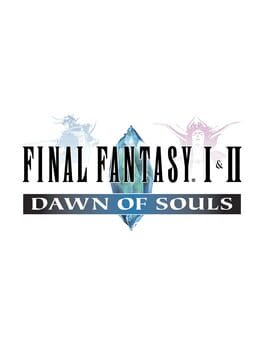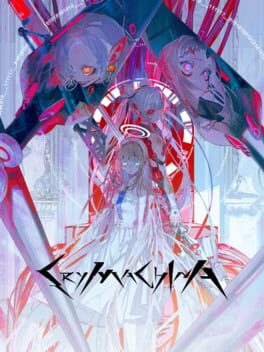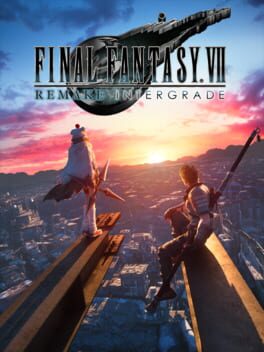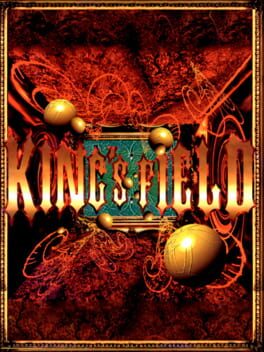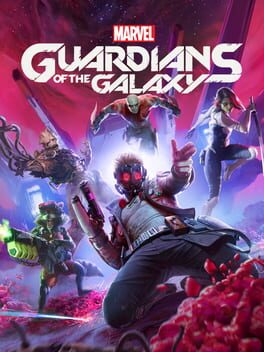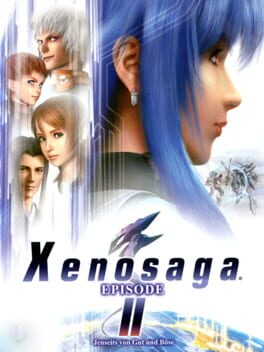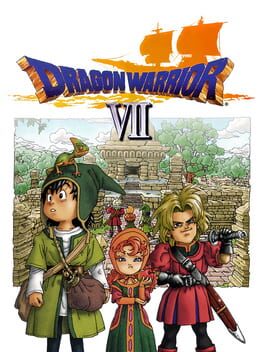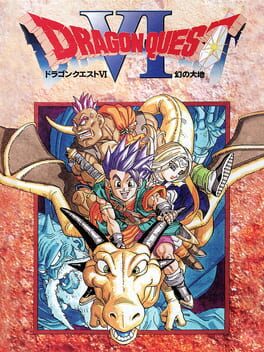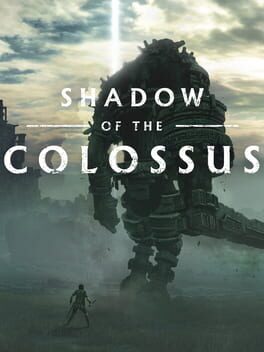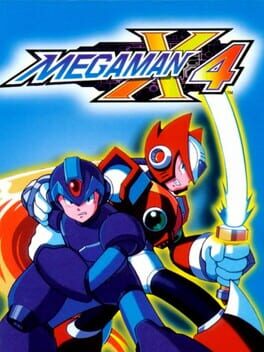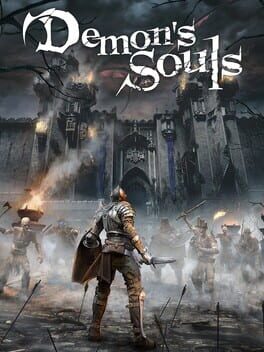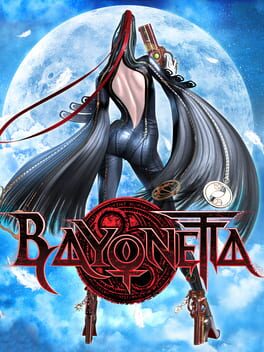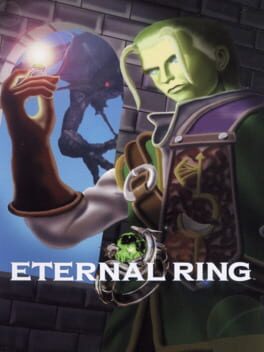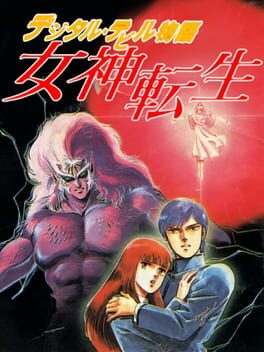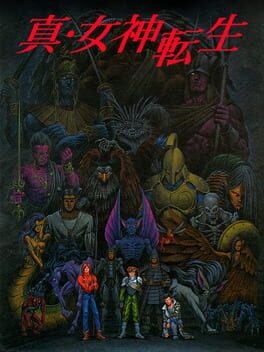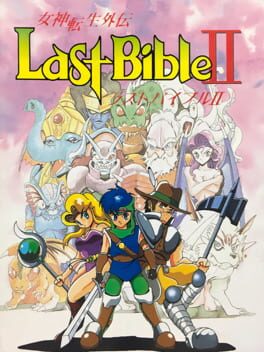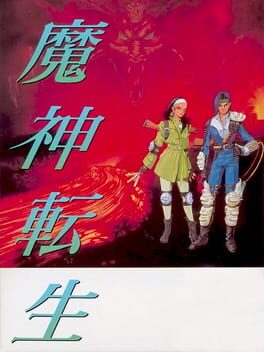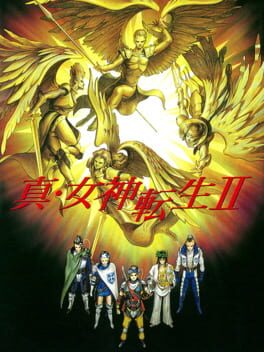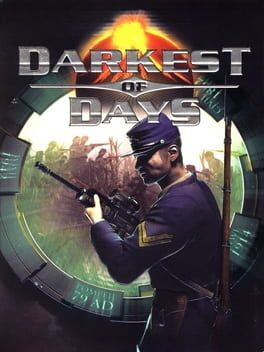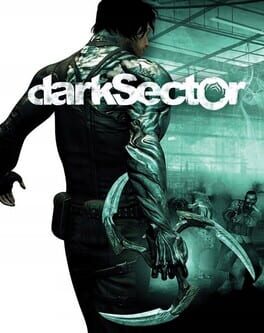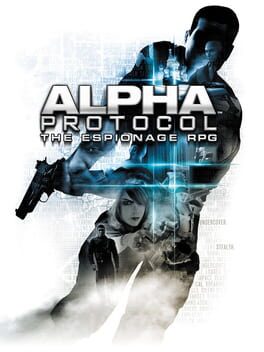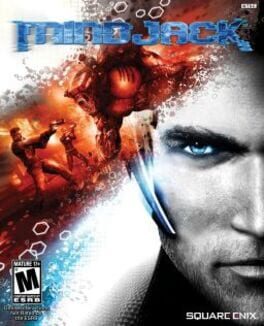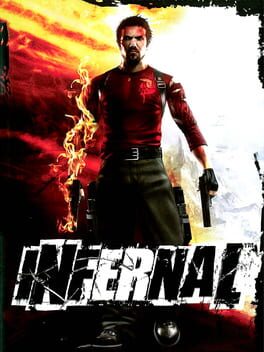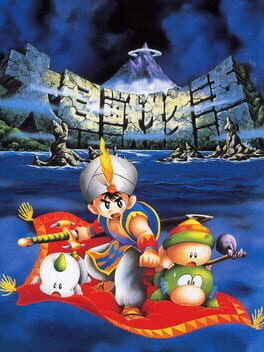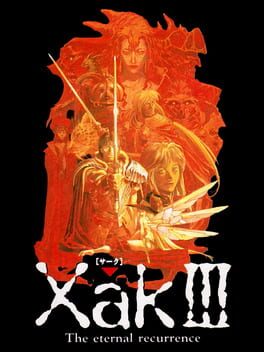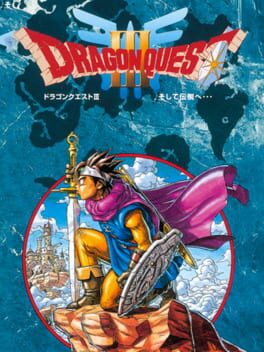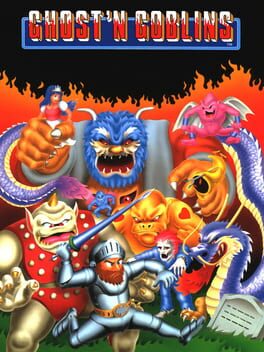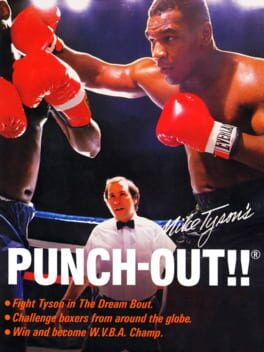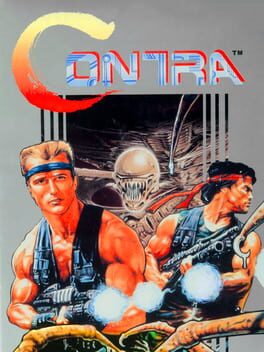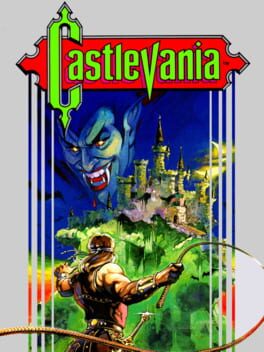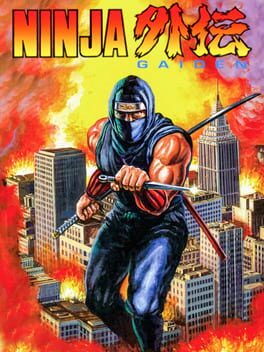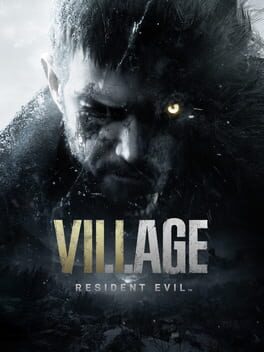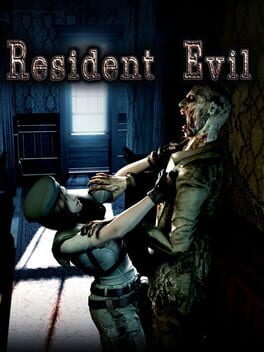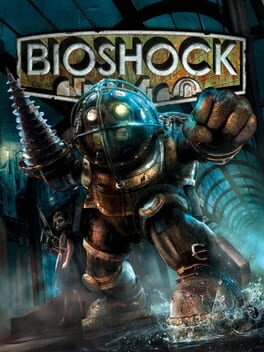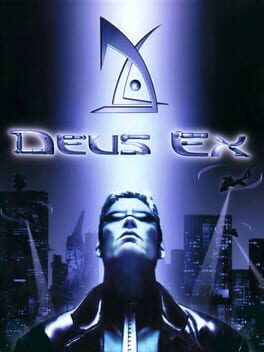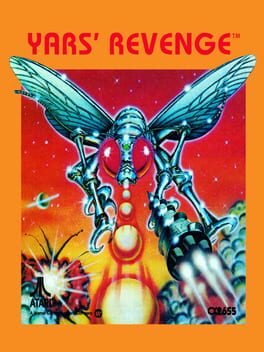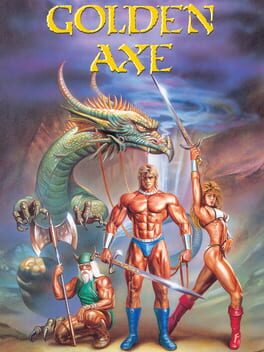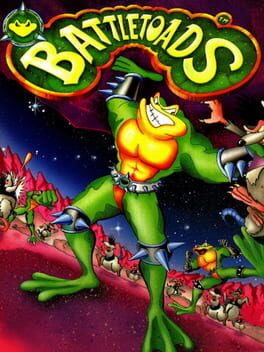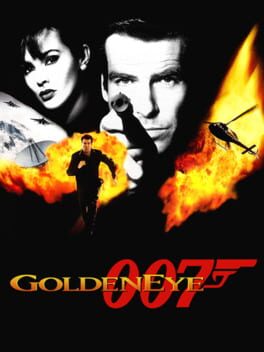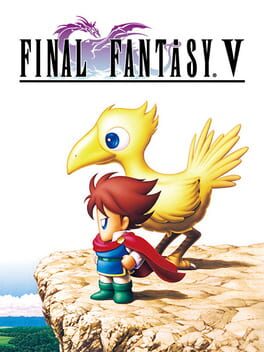Shu_Watch
379 reviews liked by Shu_Watch
This review is about FF1. I had actually started the psp version before I chose to play the gba version, but I dropped it since I found the game to be boring and overall just a slog. Nothing in the game really interested me and I was really annoyed by the encounter rate.
Still, after a while I decided to give the game another chance through a different version, and the game really grew on me. I still didnt really like the intro but after finally figuring out where I was supposed to go on the ship I got the appeal. The game is just really charming, from the varied playstyles you can get from the various party combinations, to the cool little sprites of enemies, to really just how simplistic it is in both its gameplay and its story and world, though I think what really won me over was the bonus dungeons this version introduced, or to be more precise, the bonus bosses in these dungeons.
The actual dungeons themselves were whatever. I actually did some of the bosses way earlier than I was supposed to and it was exhilerating clutching victory from them despite all the odds. Even the later bosses for when I was appropriately leveled still put up a good fight, though this lead me to realize the big problem with this version... its way too easy. The reason the bosses were challenging was because they were balanced around the changes to the stat scaling and spell use system. Aside from the beginning of the game, everything got steamrolled by my party since I didnt need to bother conserving spells or healing items since I had an abundance of mp to get me through the dungeons. Even the warmech/death machine, said to be the hardest encounter in the original versions of the game, fell to me with a couple of turns without ever posing a threat to my party.
I think I'll play the ps1 or nes versions of the game someday, to experience the challenge they offered, since while I still liked the game, it felt like it really shined when I actually needed to think about it beyond "press a to win". Either way, I'm glad it really wasn't the FINAL fantasy like the game's title says lol.
Still, after a while I decided to give the game another chance through a different version, and the game really grew on me. I still didnt really like the intro but after finally figuring out where I was supposed to go on the ship I got the appeal. The game is just really charming, from the varied playstyles you can get from the various party combinations, to the cool little sprites of enemies, to really just how simplistic it is in both its gameplay and its story and world, though I think what really won me over was the bonus dungeons this version introduced, or to be more precise, the bonus bosses in these dungeons.
The actual dungeons themselves were whatever. I actually did some of the bosses way earlier than I was supposed to and it was exhilerating clutching victory from them despite all the odds. Even the later bosses for when I was appropriately leveled still put up a good fight, though this lead me to realize the big problem with this version... its way too easy. The reason the bosses were challenging was because they were balanced around the changes to the stat scaling and spell use system. Aside from the beginning of the game, everything got steamrolled by my party since I didnt need to bother conserving spells or healing items since I had an abundance of mp to get me through the dungeons. Even the warmech/death machine, said to be the hardest encounter in the original versions of the game, fell to me with a couple of turns without ever posing a threat to my party.
I think I'll play the ps1 or nes versions of the game someday, to experience the challenge they offered, since while I still liked the game, it felt like it really shined when I actually needed to think about it beyond "press a to win". Either way, I'm glad it really wasn't the FINAL fantasy like the game's title says lol.
Crymachina
2023
Pussy
TBD
Drakengard
2003
I adore both Nier and its sequel Nier: Automata. When I first completed Nier years ago, I attempted to play through its director Yoko Taro's first big game Drakengard and was pretty firmly not impressed. After finishing and adoring Nier: Automata earlier this year, I decided to give Drakengard (or as it's known in Japanese "Drag-On Dragoon) another try to see what people see about this game. Like Nier, Drakengard has multiple endings and they're certainly all intended to be played through, and up until even after completing the first ending of Drakengard I was really unimpressed and frustrated with my time with it. However, as I went on to see the other endings and content (as the completion percentage in the lower right is keen to inform you, more than half of the game is still waiting for you after you see ending A), I began to respect Drakengard more and more as a game and as a work of fiction. It took me just about 24 hours to get all five endings in the Japanese version of the game. Before the review beings properly, I want to clarify that while I won't get into any discussions that require content warnings in this review (and hoo boy does Drakengard need them), I will be getting into some fairly heavy spoilers for the game in my discussion of the themes it presents.
Drakengard is the story of Caim, a soldier and prince of the allied army, and the red dragon he has formed a pact with. Despite Caim's hatred of dragons (an imperial dragon killed his parents) and the dragon's general detest for humans, they form a pact between their souls to save their own lives when they're both on the brink of death. Caim and his dragon go on to fight the imperial army headed by an evil empress bent on destroying the world by killing Caim's big sister who is also a goddess that acts as a seal against the aforementioned world destruction. The story itself is somewhat complicated on paper as far as characters, motivations, and places go, but the particulars aren't really important. Most characters in Drakengard don't really change over the course of the story, and this is a game whose message is much more about its themes than the story itself, but we'll get back to that later. First we need to mention the actual gameplay of Drakengard.
Drakengard as a project started out as something to capitalize on the success of the Dynasty Warriors (aka "Musou") series, which is why Drakengard has big fields of enemies for you to tear down hundreds of. However, midway through its development, it was also decided that it would also be prudent to make Drakengard a vehicle to ALSO jump onto the popularity of the Ace Combat series, which is why Drakengard also has the aerial combat sections on the dragon. Neither of these sections are particularly impressive in and of themselves, and honestly both somewhat work against each other on a more fundamental mechanical level.
The most solid parts overall are the air missions where you have your dragon and can fly around the skies defeating targets. It can be a bit overly difficult to maneuver at times and when characters talk mid-mission they cover up your enemy radar (very annoyingly), but overall these are far more like the simplicity of Star Fox's flying missions than something more technical than Ace Combat. You have a normal breath attack, a homing attack, and a super magic attack as well as the ability to zoom to the right or left to avoid incoming fire. They're quick, breezy, and a little annoying with how you can sometimes get overwhelmed, but they overall work fine.
The on-ground sections are very Musou-like, with you going around and slicing up tons of enemies trying to kill targets to win that particular mission. You have a normal attack, a magic attack you can do if you have enough mana from killing enemies, and a combo super you can do by pressing the button for your magic attack mid-combo (which yes, results in a lot of whiffed magic uses when you meant to do your combo super). You also, quite usefully, have a ground dodge just like the dragon has side-dashes in the air. There are also new weapons scattered throughout the game that you can get to allow you access to new combos as well as new magic spells to fling around.
The ground combat is where most of the outright faults with the game mechanically derive from, however. Very annoyingly, your camera is also the same as in the sky. Turning the right stick just makes you look in that direction temporarily. It doesn't actually properly turn the camera. It turns it like you're looking left and right in a cockpit like in Ace Combat. This is all well and fine for the flying sections, but it is not welcome at ALL in the ground sections, and the only way to refocus the camera is by holding the block button. This was likely a compromise made due to how you can also summon your dragon to fly on during the on-ground missions, but it's still one I could've easily done without.
The new weapons are also not very fun either, ultimately. Despite there being 65 of them, most of them require some real sleuthing or dumb luck to find without a guide, with many being locked behind killing specific enemies, taking specific paths, beating certain enemies or levels within time limits, or even just waiting around as long as 25 whole minutes for the chest to just spawn on its own. Just to top that whole mess off, none of these secrets are communicated to the player in any way shape or form. You aren't even told which verses (segments of chapters) have weapons remaining in them to find. To make matters even worse, you can't even really properly use a weapon when you first find it. Caim and the dragon both level up, but Caim's levels only affect his and the dragon's shared max HP, and the dragon's levels only affect the dragon's attack power. Weapon attack is entirely down to the level of the weapon, and weapons don't really have much of a power creep, and you can't really know how powerful a weapon will be until you level it up. This means every time you want to try out a new weapon to really get use out of in the story, you'll need to grind for like half an hour in earlier stages to get it to max level so THEN you can start really getting a feel for it. HOWEVER, as bad as ALL that sounds (and is), I would argue that a significant portion of it is actually in the positive service of the game as a whole.
Drakengard's endings progressively make the narrative get to worse and worse places. Arguably, the first ending you get is the "good" ending for the story, as it's certainly the happiest outcome for everyone involved. Caim's priest ally even posits whether the "gods" have decided to spare [humanity]. As you go towards further and further endings, playing more and more of the game, you see more and more just how monstrous all the characters, Caim included, are. The further endings all progressively doom the world to differing but all worse fates, with the final ending opening up a portal to modern day Tokyo (and, given that that is the inciting plot incident for Nier's canon, you could argue it ends up destroying all of the real world's humanity).
Drakengard is ultimately a game that is trying to comment on how players interact with games and particularly the narratives within them in relation to the gameplay. When you enter the portal in ending E to the real world's Tokyo, the dragon remarks that you've entered the world of the "gods". When the priest asks in ending A if the gods have decided to spare them, he isn't referring to unknowable gods of his world. He's referring to you, the player, and all of us in our own world. Much like Undertale would get so much praise for more than a decade later, we, the player, will decide if we spare them and their world by stopping at our first ending and not continuing as we are prompted to. Getting ending E requires going through the monotonous task of collecting all 65 weapons in the game. It is an extremely deliberate act that takes no small amount of time (I'd say it's easily more than a third of the game's completion time), and the final rhythm game-like boss battle of that ending is also very difficult. The player is REALLY committing to this destruction all in the sake of completing a game, and Drakengard wants us to ponder the morality of that in the context of its narrative. I think something like Undertale achieves this a bit more successfully, but I can't say that I didn't leave Drakengard impressed with the message it tries to tell with what could otherwise come off as just a quite dark (for a video game, certainly) medieval fantasy story.
Presentation-wise, Drakengard is a bit of an odd mixed bag. Visually, it's quite a nice-looking game for 2003, with the CGI cutscenes (particularly of the later endings) looking very nice even today. The ground enemy designs are a bit uninteresting, but the flying enemy designs are generally really cool (they feel far more Nier-like), and once you get to the giant babies borne from space at the end of the game, it just gets to plain nightmare fuel territory. The music is really weird, being remixes of pieces of classical music. From what I've read about it, they were apparently deliberately put together to evoke the game's theme of "madness", and given how several of my friends who watched me play it over Discord described the music as "brain melting", I think they achieved their goals XD. As a final note, while I remember the English VA being fairly dire, I thought the Japanese VA was really good, although I don't believe any version of the game has any kind of language select option, unfortunately.
Verdict: Hesitantly Recommended. I really liked this game, but it will definitely not be for everyone. Drakengard is a game much more than the sum of its parts mechanically, and that will turn off a lot of people pretty quickly, and I also don't blame them for that. I think Drakengard is a fascinating and fairly bold attempt at creating a narrative in a video game for its budget in 2003, and I really respect it for that, but I also have the good sense to realize that that is SO not what many (or even most) people go to video games seeking. If what this review has described has piqued your interest, then I'd say it's probably worth hunting the game down and giving it a try. Drakengard is a game that most people will quickly dislike and for good reasons, but I think it will always be a game I have a certain fondness for.
Drakengard is the story of Caim, a soldier and prince of the allied army, and the red dragon he has formed a pact with. Despite Caim's hatred of dragons (an imperial dragon killed his parents) and the dragon's general detest for humans, they form a pact between their souls to save their own lives when they're both on the brink of death. Caim and his dragon go on to fight the imperial army headed by an evil empress bent on destroying the world by killing Caim's big sister who is also a goddess that acts as a seal against the aforementioned world destruction. The story itself is somewhat complicated on paper as far as characters, motivations, and places go, but the particulars aren't really important. Most characters in Drakengard don't really change over the course of the story, and this is a game whose message is much more about its themes than the story itself, but we'll get back to that later. First we need to mention the actual gameplay of Drakengard.
Drakengard as a project started out as something to capitalize on the success of the Dynasty Warriors (aka "Musou") series, which is why Drakengard has big fields of enemies for you to tear down hundreds of. However, midway through its development, it was also decided that it would also be prudent to make Drakengard a vehicle to ALSO jump onto the popularity of the Ace Combat series, which is why Drakengard also has the aerial combat sections on the dragon. Neither of these sections are particularly impressive in and of themselves, and honestly both somewhat work against each other on a more fundamental mechanical level.
The most solid parts overall are the air missions where you have your dragon and can fly around the skies defeating targets. It can be a bit overly difficult to maneuver at times and when characters talk mid-mission they cover up your enemy radar (very annoyingly), but overall these are far more like the simplicity of Star Fox's flying missions than something more technical than Ace Combat. You have a normal breath attack, a homing attack, and a super magic attack as well as the ability to zoom to the right or left to avoid incoming fire. They're quick, breezy, and a little annoying with how you can sometimes get overwhelmed, but they overall work fine.
The on-ground sections are very Musou-like, with you going around and slicing up tons of enemies trying to kill targets to win that particular mission. You have a normal attack, a magic attack you can do if you have enough mana from killing enemies, and a combo super you can do by pressing the button for your magic attack mid-combo (which yes, results in a lot of whiffed magic uses when you meant to do your combo super). You also, quite usefully, have a ground dodge just like the dragon has side-dashes in the air. There are also new weapons scattered throughout the game that you can get to allow you access to new combos as well as new magic spells to fling around.
The ground combat is where most of the outright faults with the game mechanically derive from, however. Very annoyingly, your camera is also the same as in the sky. Turning the right stick just makes you look in that direction temporarily. It doesn't actually properly turn the camera. It turns it like you're looking left and right in a cockpit like in Ace Combat. This is all well and fine for the flying sections, but it is not welcome at ALL in the ground sections, and the only way to refocus the camera is by holding the block button. This was likely a compromise made due to how you can also summon your dragon to fly on during the on-ground missions, but it's still one I could've easily done without.
The new weapons are also not very fun either, ultimately. Despite there being 65 of them, most of them require some real sleuthing or dumb luck to find without a guide, with many being locked behind killing specific enemies, taking specific paths, beating certain enemies or levels within time limits, or even just waiting around as long as 25 whole minutes for the chest to just spawn on its own. Just to top that whole mess off, none of these secrets are communicated to the player in any way shape or form. You aren't even told which verses (segments of chapters) have weapons remaining in them to find. To make matters even worse, you can't even really properly use a weapon when you first find it. Caim and the dragon both level up, but Caim's levels only affect his and the dragon's shared max HP, and the dragon's levels only affect the dragon's attack power. Weapon attack is entirely down to the level of the weapon, and weapons don't really have much of a power creep, and you can't really know how powerful a weapon will be until you level it up. This means every time you want to try out a new weapon to really get use out of in the story, you'll need to grind for like half an hour in earlier stages to get it to max level so THEN you can start really getting a feel for it. HOWEVER, as bad as ALL that sounds (and is), I would argue that a significant portion of it is actually in the positive service of the game as a whole.
Drakengard's endings progressively make the narrative get to worse and worse places. Arguably, the first ending you get is the "good" ending for the story, as it's certainly the happiest outcome for everyone involved. Caim's priest ally even posits whether the "gods" have decided to spare [humanity]. As you go towards further and further endings, playing more and more of the game, you see more and more just how monstrous all the characters, Caim included, are. The further endings all progressively doom the world to differing but all worse fates, with the final ending opening up a portal to modern day Tokyo (and, given that that is the inciting plot incident for Nier's canon, you could argue it ends up destroying all of the real world's humanity).
Drakengard is ultimately a game that is trying to comment on how players interact with games and particularly the narratives within them in relation to the gameplay. When you enter the portal in ending E to the real world's Tokyo, the dragon remarks that you've entered the world of the "gods". When the priest asks in ending A if the gods have decided to spare them, he isn't referring to unknowable gods of his world. He's referring to you, the player, and all of us in our own world. Much like Undertale would get so much praise for more than a decade later, we, the player, will decide if we spare them and their world by stopping at our first ending and not continuing as we are prompted to. Getting ending E requires going through the monotonous task of collecting all 65 weapons in the game. It is an extremely deliberate act that takes no small amount of time (I'd say it's easily more than a third of the game's completion time), and the final rhythm game-like boss battle of that ending is also very difficult. The player is REALLY committing to this destruction all in the sake of completing a game, and Drakengard wants us to ponder the morality of that in the context of its narrative. I think something like Undertale achieves this a bit more successfully, but I can't say that I didn't leave Drakengard impressed with the message it tries to tell with what could otherwise come off as just a quite dark (for a video game, certainly) medieval fantasy story.
Presentation-wise, Drakengard is a bit of an odd mixed bag. Visually, it's quite a nice-looking game for 2003, with the CGI cutscenes (particularly of the later endings) looking very nice even today. The ground enemy designs are a bit uninteresting, but the flying enemy designs are generally really cool (they feel far more Nier-like), and once you get to the giant babies borne from space at the end of the game, it just gets to plain nightmare fuel territory. The music is really weird, being remixes of pieces of classical music. From what I've read about it, they were apparently deliberately put together to evoke the game's theme of "madness", and given how several of my friends who watched me play it over Discord described the music as "brain melting", I think they achieved their goals XD. As a final note, while I remember the English VA being fairly dire, I thought the Japanese VA was really good, although I don't believe any version of the game has any kind of language select option, unfortunately.
Verdict: Hesitantly Recommended. I really liked this game, but it will definitely not be for everyone. Drakengard is a game much more than the sum of its parts mechanically, and that will turn off a lot of people pretty quickly, and I also don't blame them for that. I think Drakengard is a fascinating and fairly bold attempt at creating a narrative in a video game for its budget in 2003, and I really respect it for that, but I also have the good sense to realize that that is SO not what many (or even most) people go to video games seeking. If what this review has described has piqued your interest, then I'd say it's probably worth hunting the game down and giving it a try. Drakengard is a game that most people will quickly dislike and for good reasons, but I think it will always be a game I have a certain fondness for.
Final Fantasy XVI
2023
I considered strongly putting together a long-form critique of this game, but the most damning statement I could possibly make about Final Fantasy XVI is that I truly don't think it's worth it. The ways in which I think this game is bad are not unique or interesting: it is bad in the same way the vast majority of these prestige Sony single-player exclusives are. Its failures are common, predictable, and depressingly endemic. It is bad because it hates women, it is bad because it treats it's subject matter with an aggressive lack of care or interest, it is bad because it's imagination is as narrow and constrained as it's level design. But more than anything else, it is bad because it only wants to be Good.
Oxymoronic a statement as it might appear, this is core to the game's failings to me. People who make games generally want to make good games, of course, but paired with that there is an intent, an interest, an idea that seeks to be communicated, that the eloquence with which it professes its aesthetic, thematic, or mechanical goals will produce the quality it seeks. Final Fantasy XVI may have such goals, but they are supplicant to its desire to be liked, and so, rather than plant a flag of its own, it stitches together one from fabric pillaged from the most immediate eikons of popularity and quality - A Song of Ice and Fire, God of War, Demon Slayer, Devil May Cry - desperately begging to be liked by cloaking itself in what many people already do, needing to be loved in the way those things are, without any of the work or vision of its influences, and without any charisma of its own. Much like the patch and DLC content for Final Fantasy XV, it's a reactionary and cloying work that contorts itself into a shape it thinks people will love, rather than finding a unique self to be.
From the aggressively self-serious tone that embraces wholeheartedly the aesthetics of Prestige Fantasy Television with all its fucks and shits and incest and Grim Darkness to let you know that This Isn't Your Daddy's Final Fantasy, without actually being anywhere near as genuinely Dark, sad, or depressing as something like XV, from combat that borrows the surface-level signifiers of Devil May Cry combat - stingers, devil bringers, enemy step - but without any actual opposition or reaction of that series' diverse and reactive enemy set and thoughtful level design, or the way there's a episode of television-worth of lectures from a character explaining troop movements and map markers that genuinely do not matter in any way in order to make you feel like you're experiencing a well thought-out and materially concerned political Serious Fantasy, Final Fantasy XVI is pure wafer-thin illusion; all the surface from it's myriad influences but none of the depth or nuance, a greatest hits album from a band with no voice to call their own, an algorithmically generated playlist of hits that tunelessly resound with nothing. It looks like Devil May Cry, but it isn't - Devil May Cry would ask more of you than dodging one attack at a time while you perform a particularly flashy MMO rotation. It looks like A Song of Ice and Fire, but it isn't - without Martin's careful historical eye and materialist concerns, the illusion that this comes even within striking distance of that flawed work shatters when you think about the setting for more than a moment.
In fairness, Final Fantasy XVI does bring more than just the surface level into its world: it also brings with it the nastiest and ugliest parts of those works into this one, replicated wholeheartedly as Aesthetic, bereft of whatever semblance of texture and critique may have once been there. Benedikta Harman might be the most disgustingly treated woman in a recent work of fiction, the seemingly uniform AAA Game misogyny of evil mothers and heroic, redeemable fathers is alive and well, 16's version of this now agonizingly tired cliche going farther even than games I've railed against for it in the past, which all culminates in a moment where three men tell the female lead to stay home while they go and fight (despite one of those men being a proven liability to himself and others when doing the same thing he is about to go and do again, while she is not), she immediately acquiesces, and dutifully remains in the proverbial kitchen. Something that thinks so little of women is self-evidently incapable of meaningfully tackling any real-world issue, something Final Fantasy XVI goes on to decisively prove, with its story of systemic evils defeated not with systemic criticism, but with Great, Powerful Men, a particularly tiresome kind of rugged bootstrap individualism that seeks to reduce real-world evils to shonen enemies for the Special Man with Special Powers to defeat on his lonesome. It's an attempt to discuss oppression and racism that would embarrass even the other shonen media it is clearly closer in spirit to than the dark fantasy political epic it wears the skin of. In a world where the power fantasy of the shonen superhero is sacrosanct over all other concerns, it leads to a conclusion as absurd and fundamentally unimaginative as shonen jump's weakest scripts: the only thing that can stop a Bad Guy with an Eikon is a Good Guy with an Eikon.
In borrowing the aesthetics of the dark fantasy - and Matsuno games - it seeks to emulate, but without the nuance, FF16 becomes a game where the perspective of the enslaved is almost completely absent (Clive's period as a slave might as well not have occurred for all it impacts his character), and the power of nobility is Good when it is wielded by Good Hands like Lord Rosfield, a slave owner who, despite owning the clearly abused character who serves as our introduction to the bearers, is eulogized completely uncritically by the script, until a final side quest has a character claim that he was planning to free the slaves all along...alongside a letter where Lord Rosfield discusses his desire to "put down the savages". I've never seen attempted slave owner apologia that didn't reveal its virulent underlying racism, and this is no exception. In fact, any time the game attempts to put on a facade of being about something other than The Shonen Hero battling other Kamen Riders for dominance, it crumbles nigh-immediately; when Final Fantasy 16 makes its overtures towards the Power of Friendship, it rings utterly false and hollow: Clive's friends are not his power. His power is his power.
The only part of the game that truly spoke to me was the widely-derided side-quests, which offer a peek into a more compelling story: the story of a man doing the work to build and maintain a community, contributing to both the material and emotional needs of a commune that attempts to exist outside the violence of society. As tedious as these sidequests are - and as agonizing as their pacing so often is - it's the only part of this game where it felt like I was engaging with an idea. But ultimately, even this is annihilated by the game's bootstrap nonsense - that being that the hideaway is funded and maintained by the wealthy and influential across the world, the direct beneficiaries and embodiments of the status quo funding what their involvement reveals to be an utterly illusionary attempt to escape it, rendering what could be an effective exploration of what building a new idea of a community practically looks like into something that could be good neighbors with Galt's Gulch.
In a series that is routinely deeply rewarding for me to consider, FF16 stands as perhaps its most shallow, underwritten, and vacuous entry in decades. All games are ultimately illusions, of course: we're all just moving data around spreadsheets, at the end of the day. But - as is the modern AAA mode de jour - 16 is the result of the careful subtraction of texture from the experience of a game, the removal of any potential frictions and frustrations, but further even than that, it is the removal of personality, of difference, it is the attempt to make make the smoothest, most likable affect possible to the widest number of people possible. And, just like with its AAA brethren, it has almost nothing to offer me. It is the affect of Devil May Cry without its texture, the affect of Game of Thrones without even its nuance, and the affect of Final Fantasy without its soul.
Final Fantasy XVI is ultimately a success. It sought out to be Good, in the way a PS5 game like this is Good, and succeeded. And in so doing, it closed off any possibility that it would ever reach me.
It doesn’t really surprise me that each positive sentiment I have seen on Final Fantasy XVI is followed by an exclamation of derision over the series’ recent past. Whether the point of betrayal and failure was in XV, or with XIII, or even as far back as VIII, the rhetorical move is well and truly that Final Fantasy has been Bad, and with XVI, it is good again. Unfortunately, as someone who thought Final Fantasy has Been Good, consistently, throughout essentially the entire span of it's existence, I find myself on the other side of this one.
Final Fantasy XV convinced me that I could still love video games when I thought, for a moment, that I might not. That it was still possible to make games on this scale that were idiosyncratic, personal, and deeply human, even in the awful place the video game industry is in.
Final Fantasy XVI convinced me that it isn't.
Oxymoronic a statement as it might appear, this is core to the game's failings to me. People who make games generally want to make good games, of course, but paired with that there is an intent, an interest, an idea that seeks to be communicated, that the eloquence with which it professes its aesthetic, thematic, or mechanical goals will produce the quality it seeks. Final Fantasy XVI may have such goals, but they are supplicant to its desire to be liked, and so, rather than plant a flag of its own, it stitches together one from fabric pillaged from the most immediate eikons of popularity and quality - A Song of Ice and Fire, God of War, Demon Slayer, Devil May Cry - desperately begging to be liked by cloaking itself in what many people already do, needing to be loved in the way those things are, without any of the work or vision of its influences, and without any charisma of its own. Much like the patch and DLC content for Final Fantasy XV, it's a reactionary and cloying work that contorts itself into a shape it thinks people will love, rather than finding a unique self to be.
From the aggressively self-serious tone that embraces wholeheartedly the aesthetics of Prestige Fantasy Television with all its fucks and shits and incest and Grim Darkness to let you know that This Isn't Your Daddy's Final Fantasy, without actually being anywhere near as genuinely Dark, sad, or depressing as something like XV, from combat that borrows the surface-level signifiers of Devil May Cry combat - stingers, devil bringers, enemy step - but without any actual opposition or reaction of that series' diverse and reactive enemy set and thoughtful level design, or the way there's a episode of television-worth of lectures from a character explaining troop movements and map markers that genuinely do not matter in any way in order to make you feel like you're experiencing a well thought-out and materially concerned political Serious Fantasy, Final Fantasy XVI is pure wafer-thin illusion; all the surface from it's myriad influences but none of the depth or nuance, a greatest hits album from a band with no voice to call their own, an algorithmically generated playlist of hits that tunelessly resound with nothing. It looks like Devil May Cry, but it isn't - Devil May Cry would ask more of you than dodging one attack at a time while you perform a particularly flashy MMO rotation. It looks like A Song of Ice and Fire, but it isn't - without Martin's careful historical eye and materialist concerns, the illusion that this comes even within striking distance of that flawed work shatters when you think about the setting for more than a moment.
In fairness, Final Fantasy XVI does bring more than just the surface level into its world: it also brings with it the nastiest and ugliest parts of those works into this one, replicated wholeheartedly as Aesthetic, bereft of whatever semblance of texture and critique may have once been there. Benedikta Harman might be the most disgustingly treated woman in a recent work of fiction, the seemingly uniform AAA Game misogyny of evil mothers and heroic, redeemable fathers is alive and well, 16's version of this now agonizingly tired cliche going farther even than games I've railed against for it in the past, which all culminates in a moment where three men tell the female lead to stay home while they go and fight (despite one of those men being a proven liability to himself and others when doing the same thing he is about to go and do again, while she is not), she immediately acquiesces, and dutifully remains in the proverbial kitchen. Something that thinks so little of women is self-evidently incapable of meaningfully tackling any real-world issue, something Final Fantasy XVI goes on to decisively prove, with its story of systemic evils defeated not with systemic criticism, but with Great, Powerful Men, a particularly tiresome kind of rugged bootstrap individualism that seeks to reduce real-world evils to shonen enemies for the Special Man with Special Powers to defeat on his lonesome. It's an attempt to discuss oppression and racism that would embarrass even the other shonen media it is clearly closer in spirit to than the dark fantasy political epic it wears the skin of. In a world where the power fantasy of the shonen superhero is sacrosanct over all other concerns, it leads to a conclusion as absurd and fundamentally unimaginative as shonen jump's weakest scripts: the only thing that can stop a Bad Guy with an Eikon is a Good Guy with an Eikon.
In borrowing the aesthetics of the dark fantasy - and Matsuno games - it seeks to emulate, but without the nuance, FF16 becomes a game where the perspective of the enslaved is almost completely absent (Clive's period as a slave might as well not have occurred for all it impacts his character), and the power of nobility is Good when it is wielded by Good Hands like Lord Rosfield, a slave owner who, despite owning the clearly abused character who serves as our introduction to the bearers, is eulogized completely uncritically by the script, until a final side quest has a character claim that he was planning to free the slaves all along...alongside a letter where Lord Rosfield discusses his desire to "put down the savages". I've never seen attempted slave owner apologia that didn't reveal its virulent underlying racism, and this is no exception. In fact, any time the game attempts to put on a facade of being about something other than The Shonen Hero battling other Kamen Riders for dominance, it crumbles nigh-immediately; when Final Fantasy 16 makes its overtures towards the Power of Friendship, it rings utterly false and hollow: Clive's friends are not his power. His power is his power.
The only part of the game that truly spoke to me was the widely-derided side-quests, which offer a peek into a more compelling story: the story of a man doing the work to build and maintain a community, contributing to both the material and emotional needs of a commune that attempts to exist outside the violence of society. As tedious as these sidequests are - and as agonizing as their pacing so often is - it's the only part of this game where it felt like I was engaging with an idea. But ultimately, even this is annihilated by the game's bootstrap nonsense - that being that the hideaway is funded and maintained by the wealthy and influential across the world, the direct beneficiaries and embodiments of the status quo funding what their involvement reveals to be an utterly illusionary attempt to escape it, rendering what could be an effective exploration of what building a new idea of a community practically looks like into something that could be good neighbors with Galt's Gulch.
In a series that is routinely deeply rewarding for me to consider, FF16 stands as perhaps its most shallow, underwritten, and vacuous entry in decades. All games are ultimately illusions, of course: we're all just moving data around spreadsheets, at the end of the day. But - as is the modern AAA mode de jour - 16 is the result of the careful subtraction of texture from the experience of a game, the removal of any potential frictions and frustrations, but further even than that, it is the removal of personality, of difference, it is the attempt to make make the smoothest, most likable affect possible to the widest number of people possible. And, just like with its AAA brethren, it has almost nothing to offer me. It is the affect of Devil May Cry without its texture, the affect of Game of Thrones without even its nuance, and the affect of Final Fantasy without its soul.
Final Fantasy XVI is ultimately a success. It sought out to be Good, in the way a PS5 game like this is Good, and succeeded. And in so doing, it closed off any possibility that it would ever reach me.
It doesn’t really surprise me that each positive sentiment I have seen on Final Fantasy XVI is followed by an exclamation of derision over the series’ recent past. Whether the point of betrayal and failure was in XV, or with XIII, or even as far back as VIII, the rhetorical move is well and truly that Final Fantasy has been Bad, and with XVI, it is good again. Unfortunately, as someone who thought Final Fantasy has Been Good, consistently, throughout essentially the entire span of it's existence, I find myself on the other side of this one.
Final Fantasy XV convinced me that I could still love video games when I thought, for a moment, that I might not. That it was still possible to make games on this scale that were idiosyncratic, personal, and deeply human, even in the awful place the video game industry is in.
Final Fantasy XVI convinced me that it isn't.
King's Field
1994
I speedrun this and have wayyyy too many hours on it
Suffer from a lot of lag spikes on the Xbox Series versions, but found it to be smooth on the Playstation versions.
Jon Mclaren portrays Starlord extremely well, and I love the Guardians Chemistry, I really hope Marvel commission more Single player Games based around their franchise like this, because this is heavily under rated and a super fun time!
Suffer from a lot of lag spikes on the Xbox Series versions, but found it to be smooth on the Playstation versions.
Jon Mclaren portrays Starlord extremely well, and I love the Guardians Chemistry, I really hope Marvel commission more Single player Games based around their franchise like this, because this is heavily under rated and a super fun time!
